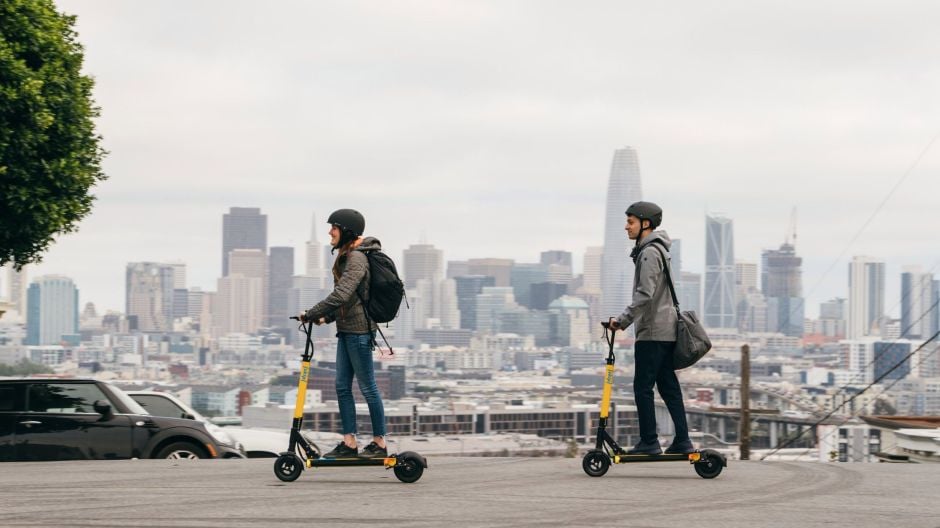San Francisco is sweeping its streets of electric scooters to make the industry legit
The residents of San Francisco are used to “disruptive” startups invading their city. Since 2008, Lyft, Uber and other ride-sharing services all arrived unannounced and local agencies responded with a mix of threats, “citizen arrests,” and eventually (with state legislators’ help) regulations. The latest intruders are electric scooters, scattered across sidewalks by the likes of LimeBike, Bird, Spin and others.


The residents of San Francisco are used to “disruptive” startups invading their city. Since 2008, Lyft, Uber and other ride-sharing services all arrived unannounced and local agencies responded with a mix of threats, “citizen arrests,” and eventually (with state legislators’ help) regulations. The latest intruders are electric scooters, scattered across sidewalks by the likes of LimeBike, Bird, Spin and others.
The city has learned its lesson.
On May 24, city politicians, scrambling to respond amid residents’ complaints about blocked sidewalks and reckless driving, issued an ultimatum: get off the sidewalks and get a permit or else. City Attorney Dennis Herrera stated the deadline for compliance with the policy is June 4. Companies that violate the deadline risk confiscation and a $100 fine per scooter, as well as the denial of future operating permits. “I will reserve the right to do anything legally to make sure the law is enforced,” Herrera told the San Francisco Chronicle. LimeBike and Spin have indicated they would comply. Bird has not made a statement.
The last few months have seen a rash of cease-and-desist orders, confiscated scooters, contentious public meetings and irate city officials unhappy with how the scooter companies have rolled out their service, essentially with no attempts to work with the city or get public input. This stereotypical Silicon Valley approach is now leading to a new, strict permit process. The year-long trial will allow five scooter companies to operate a maximum of 1,250 scooters among them and and then potentially doubling that number during the second half of the year. At the moment, startups have an estimated 16,000 scooters on the street. The conditions require the companies to ensure pedestrian safety, low-income access, protect rider data privacy, and share data with the city.
San Francisco has been ground zero for dealing with the Silicon Valley upstarts seeking to upend the hotel and taxi industries. But, after some early hostile rhetoric, the city has generally accommodated the new companies. Airbnb, Uber, and Lyft are thriving in the city (although legal battles continue). San Francisco is in the midst of a campaign to reduce cars and streamline traffic, while reducing the number of automobile-related fatalities to zero by 2024. Electric scooters would seem to fit into that push, and the city has indicated it will welcome the scooters on its own terms. “San Francisco supports transportation innovation, but it cannot come at the price of public safety,” said Herrera.